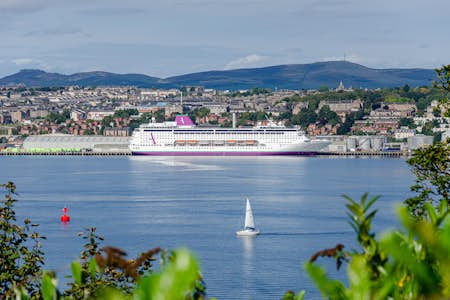COVID-19 has caused a lot of isolation for many people. It's also brought a realisation of how important community is. It might be for that reason alone, that you want to organise a community day. It could also be for a host of other reasons:
- A charitable cause you’re enthusiastic about and for which you're looking to raise funds.
- A club you know that does excellent work in your neighbourhood, and you'd like to put on an event to support it.
- You might simply be looking for a new and fun challenge to experience.
Whatever your reason for wanting to bring the community together, it's a task worth doing. And although this may sound daunting for someone who's never done this, it's do-able! All you need is a good plan, an idea of who you want to attend, and the types of activities you’d like to put on.
Putting on An Event with Little Money or Experience
Even if you have no experience in putting on events, organising a fundraising event is a fantastic way to start! You don't need an enormous budget to do this, either. Depending on the size of the event and the activities you choose to do, you may not need any budget, at all. Several businesses would likely donate prizes for free. And venues tend to lend spaces for free, or at a discounted price, for a worthy cause. After all, charitable events are great opportunities for companies to show their social consciousness. As a by-product, they will get some positive publicity for it, too.
It’s simple to get involved with the charities for whom you're looking to fundraise. Volunteers are often vital to charities being able to run, especially volunteers who are genuinely passionate about the charity’s cause. Charities always appreciate those who actively contribute to making a difference with them.
Bringing the community together through an event can help develop your network, too. Because you'll be reaching out to many people when organising it. Such as:
- Caterers.
- Bands.
- Business owners.
- Members of the public.
In doing so, you’ll make new connections with people you can collaborate with - or socialise with - in the future. And because you'll be reaching out to them for a charitable cause, they may donate their time and services for free.
Hopefully, this makes you feel more confident about taking on the role of organiser. And, that much closer to being able to bring your community together. Which means you can start considering some of the vital next steps for putting on your event.
How Do You Organise A Community Fun Day?
The first thing to consider when organising your community event is your aims. What are you trying to achieve?
Discuss your aims with any other organisers who are helping you put on the event. Your goal may be to raise money for an agreed cause or to do something that brings the community together. It might be to inspire people to start a new activity, such as doing some form of exercise to improve their health. Perhaps your goal is to raise awareness about something meaningful to you or motivating others into helping you tackle the issue.
Also, choose what activities you’re going to organise, and try to go for something aligned to the target audience’s interests and abilities. You must figure out the types of activities you believe your friends and the local community would enjoy. You must also decide if you want to just put on one big event, or whether to organise a variety of small activities that can suit different people. A few categories they might fall into are:
- Families.
- Children.
- Singles.
- People with a specific set of needs who require adaptive, accessible activities.
Think about the least number of people you need to attend the event to achieve your goals and the maximum capacity, if there is one, of your event. Once you're clear on these things, the next stages of planning will differ depending on the type of events you choose to include in your community fun day. But, there are a few main ones that you will typically need.
4 Key Steps to Planning Your Event
Set A Timescale
When setting a timescale for organising the event, make sure it’s realistic. You’ll probably be looking at three months to plan a small event, six months for a medium one, and 12 - 18 months for putting on a large event.
The best way of deciding the timescales is by knowing how long specific tasks will take, particularly those essential to the day taking place. If you’re going to need to apply for funding, for instance, bear in mind that can take at least 12-16 weeks. Or should you need to book venues and entertainment, remember that these are likely to need at least a few weeks’ notice, too.
Choose an Appropriate Time and Date
Select a date and time that’s suitable for your audience. So, if you’re planning to run a family fun day, then scheduling it on the weekend or during the school holidays would be a wise choice. If it’s for adults, then try to put it on in the evening or at the weekend.
Also, remember to make a note of when any guests and venues you want to book will be available. Consider the people involved in running the event, too.
We asked Rebecca Smith from Futures about this, and she told us: "It can be tough to find a day that suits the majority of people and it might take a little time. However, once you've found that perfect date, you can be secure in the knowledge that your community day is going to be enjoyed by as many people as possible."
Set A Budget
How much are you willing to spend on the event, whether it be from your money or funding? This will help direct the later parts of organising the event, like the type of venue you choose or the amount of food you can expect to have there.
Create a spreadsheet to track how you’ll spend your allocated budget. Besides the venue and entertainment, you may want to look at including things like:
- Event insurance.
- Equipment.
- Marketing.
- Refreshments.
Pick A Venue
One of the essential parts in planning a community day is picking the right venue. This is because you’ll need to think about the logistics that will apply to your audience. Here are a few examples:
- How accessible is it?
- Can people reach it by road and public transport?
- Is there affordable car parking available?
- Does it have all the necessary facilities?
Be sure to consult with your venue leading up to the event. That way, you can be confident that everyone and everything is in place to enable the day to run smoothly.
These steps are great starting points for organising your event. Using them to begin building a plan will help to be as creative as you want when envisioning it, ensuring it’s organised, clearly intentioned, and well-executed. Not everything will necessarily go exactly to plan on the day. Still, you can be sure that at the end of the event, there'll be some great successes of which you can be proud. Ones that you achieved by simply turning your plans into action. You should also remember your great reasons for putting on a community day in the first place!








